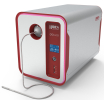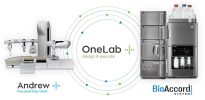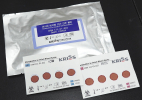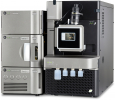SCIEX has launched Zeno SWATH DIA, a development of their SWATH technology. Zeno SWATH DIA can enable researchers to discover more potential biomarkers to be used in the development of clinical tests and in the discovery of new therapies. By combining the sensitivity and robustness of the ZenoTOF 7600 system and the high dynamic range of Zeno SWATH DIA, researchers can now routinely quantify up to twice the number of cell and plasma proteins than previously possible with SWATH approaches. The ability to quantify large numbers of lesser abundant proteins that were previously undetectable means that more potential biomarkers can be taken through to verification.
To enable translational research, this performance can be delivered at large scale. Run times can be shortened to as little as 5 min with minimal compromise in proteome coverage. Large population-scale proteomic studies can be achieved in a matter of weeks, without compromising on the depth of information obtained. This means the potential for the development of clinical tests for early detection of disease is vastly increased.
The sensitivity of Zeno SWATH DIA also enables large numbers of proteins to be quantified from sample loadings up to 10-fold lower than previous SWATH approaches. Lower sample loads mean reduced cost per sample in large scale studies, and minimised sample consumption from expensive in vivo models during drug development. Additionally, it creates opportunities for large population-scale sample collection methods such as patient-centric microsampling devices.










